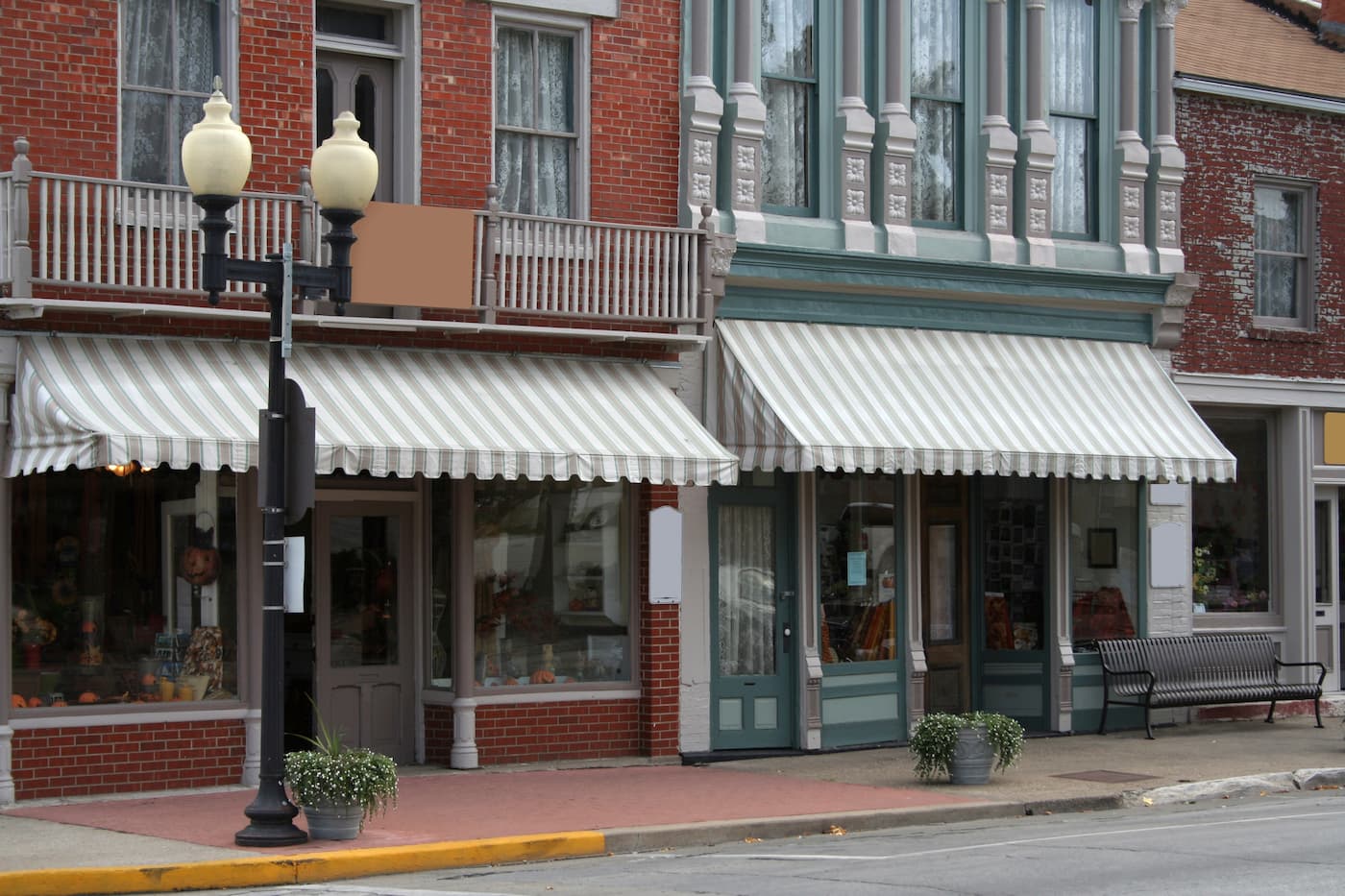How to find a good location for your business
Editorial Team
7 min read
Choosing a good location for your business is one of the most important decisions you’ll make as an entrepreneur. Sometimes, in the excitement to launch a business, important considerations about the location can get overlooked.
Business location strategy should take into account a variety of factors, including the specific needs of your venture. Zoning ordinances, local competition, operating hours, and accessibility are among the top business location factors to keep in mind. It’s also really important to do your research upfront, so you can make informed decisions about the location, since changing the location for a business can be costly down the line.
Brick-and-mortar retail sales are going strong. Though eCommerce remains a significant revenue driver, online and in-person shopping now complement each other. One recent study showed that opening a physical location can even help boost eCommerce sales. Think expansively about your overall strategy and how a good location for your business can help attract the customers you want.
A step-by-step business location strategy
There is no one-size-fits-all business location strategy. Start by considering the specifics of your business and how location could impact it. Below are some key factors to consider to help you find a good location for your business.
1. Type and size of your operation
If you’re selling an untested product to a new market, you may want to consider shopping for short-term rentals, kiosks, or pop-up locations before committing to a long-term lease. This allows you to test factors such as foot traffic and demand.
If you operate a more established business, or one that already has a presence, look at the best performing times and locations of your current store to optimize the factors that drive success.
When Eileen Colavita, founder of dog-care facility The Pupper Club, decided to open a second location in Downtown Los Angeles, she recognized that locating the business in the ground-floor retail space of a city-center apartment building–where pet owners live–would position the business for even more success. Learn more about The Pupper Club’s strategy and how Clover helped Colavita expand her operations.
2. Location’s history
In local markets, the brick-and-mortar landscape has evolved. Multi-use shopping centers have diversified, welcoming a wider range of businesses, while Main Street locations are in high demand. Survey your local landscape for trends and changes, while taking into account the types of businesses that have historically flourished in the area.
If a certain location has seen high business turnover, for example, consider whether your business would be able to buck that trend based on its differentiators–or whether the factors contributing to the location’s history would be too great for your business to overcome.
3. Customer demographics
Leverage what you know about your potential or existing customers to choose a good location for your business.
- If catering to younger shoppers, it may make sense to be in a trendier location, even if rents are a little higher than normal.
- If selling furniture to families, consider areas near new home developments or well-established neighborhoods.
Since there are no clear-cut guidelines, every entrepreneur must develop a business location strategy specific to what they understand about their customers’ needs. The goal here is to choose a spot that reflects the preferences of your target market.
For example, when Courtney Crowson of The Smoke and Oak was looking to open a bourbon and cigar lounge in his hometown, he knew he wanted to create a homey atmosphere in a popular part of town. He also wanted to cater to customers who smoked and those who didn’t. When an ideal spot became available in the Uptown neighborhood of Lexington, North Carolina, Crowson opened the Smoke and Oak. Read more about Crowson’s strategy for his unique business.
4. Foot traffic and walk-ins
Because retail merchants typically aim to attract as much foot traffic as they can, there’s often higher real estate demand in the most frequented parts of town–especially pedestrian-friendly areas. Paying a premium to be in a pedestrian or traffic hot spot may be worth it if you run a business that thrives on drop-ins–think restaurants, bars, or boutiques.
On the other hand, for professional services like financial planners and repair shops whose customers typically schedule an appointment for a specific service, it may not make sense for the business location strategy to focus as heavily on foot traffic. Instead, look for a location with visibility and easy access to parking or public transport.
5. Proximity to competition
Typically, being the only game in town is ideal. Many businesses will choose locations far from their closest competitors to help minimize the loss of sales.
That said, have you ever noticed how Starbucks cafes are always in clusters? The same goes for mattress stores, furniture outlets, and other similarly-themed businesses. This isn’t by accident.
Competing businesses often congregate to capture “spillover” traffic. In fact, research from Harvard Business School has shown why clusters are sometimes the optimal business location strategy–even if you’re a small player in a crowded field.
Being the only type of business in your town definitely has its pros and cons. Rent might be less expensive on the outskirts, but you’ll possibly miss out on spillover traffic from nearby stores and restaurants. Will having less overhead affect revenue generation? Consider what’s best for your business.
6. Location accessibility
A good location for your business should be as accessible as possible, but accessibility takes many forms, including whether:
- Your location is ADA-compliant and includes sufficient parking for disabled patrons
- There are service roads and loading docks for delivery trucks
- There is sufficient lighting if operating during nighttime hours
- Your location is easily accessible via public transit
Accessibility should also take into account your needs, as well as those of your employees. Remember, your team will need to commute, and possibly park a car or bicycle, just like your customers.
7. Zoning ordinances and restrictions
There’s a reason why nightclubs aren’t in residential areas, or why restaurants are only located in certain parts of town. Local ordinances and zoning laws place restrictions on where various types of businesses can operate.
Determining where zoning laws permit you to open a business is essential for compliance. Zoning can also help you take a big-picture view of your business location strategy. Are there business zones closer or more convenient to your potential customers? Use zoning to your advantage by considering the broader layout of your community.
8. The building’s infrastructure
As a lessee, you usually aren’t responsible for faulty plumbing or bad wiring. The landlord will likely take care of these issues. Regardless, imagine moving into a building that lacks sufficient cellular reception. Or, maybe you rent a space in a large commercial building that closes at 6 p.m. – even though your official hours of operation extend through 9 p.m. These are the types of unwelcome surprises you want to avoid.
Make sure that the location for your business is able to support your operations. It may be worthwhile to speak with previous or neighboring tenants to get a better idea of what you’re about to enter.
What business location factors apply to your situation?
There are many factors to consider when finding a good location for your business. A good business location can be key to long-term success, so the advanced legwork is worth the time investment.a.
Be sure to take the time to formulate a business location strategy that meets the unique needs of your business–and your future customers.
Clover’s POS systems can help you take payments and run your business. To get started, schedule a consultation with a Clover Business Consultant today.
This information is provided for informational purposes only and should not be construed as legal, financial, or tax advice. Readers should contact their attorneys, financial advisors, or tax professionals to obtain advice with respect to any particular matter.
Related Posts
How to start a consulting business
How to effectively manage employees in your landscaping business using your POS system
Popular Topics
Stay In Touch
Sign up and learn more about Clover.
Thank you for your subscription!
Recent Stories
- Jewelry store supplies and equipment needed for opening day
- How small businesses can use employee discounts to retain staff
- Tips and tricks for opening an outdoor pop-up restaurant
Please share your contact information
to access our premium content.
Thank you for sharing your contact information.
Download Now





